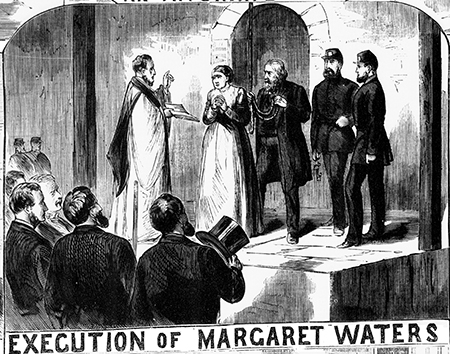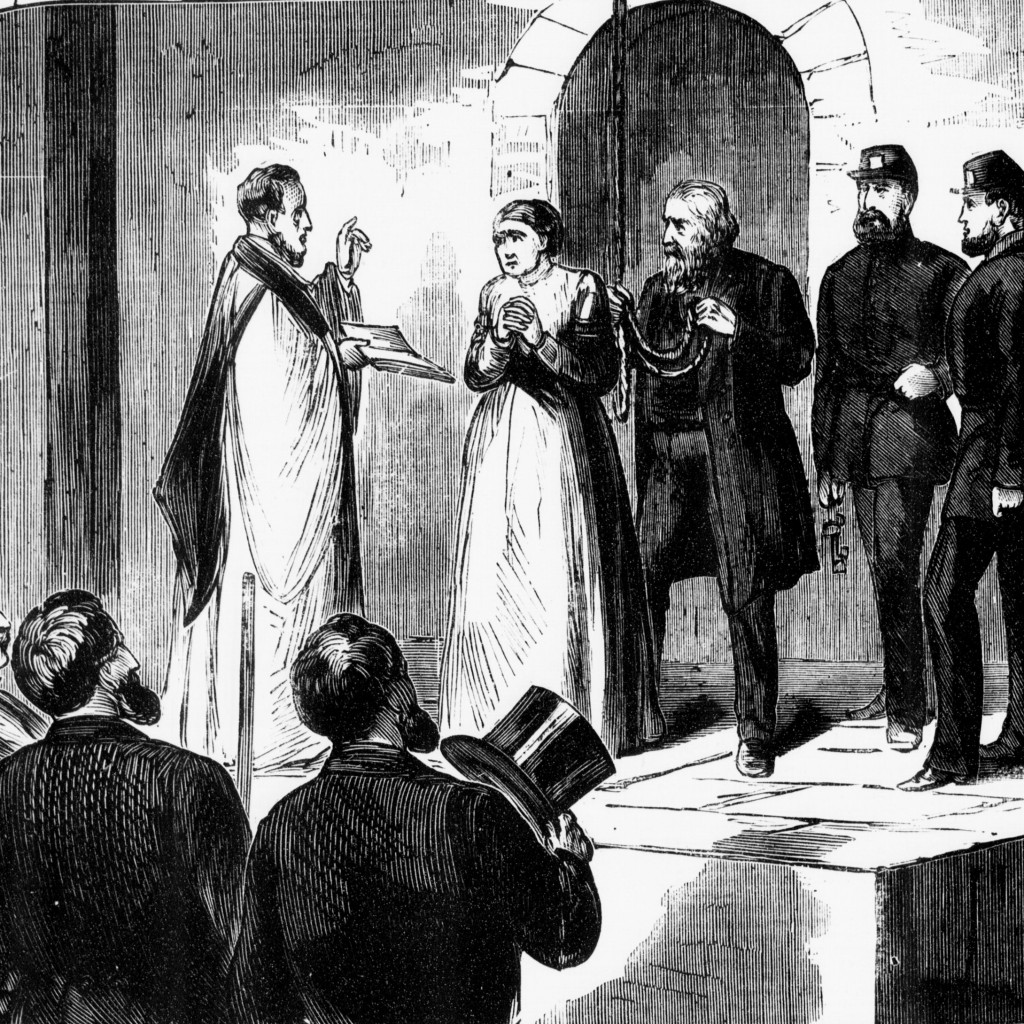Viewpoint: A Vile Product of Welfare UK?
The execution of Margaret Waters, from The Illustrated Police News on Saturday October 15, 1870
James Hinks is a PhD student in the University of Liverpool's Department of History, working on 19th Century debates around childcare
"The controversial Daily Mail headline (03/04/13) proclaimed that Mick Philpott - convicted of the manslaughter of six of his children in the Derby house fire case – was emblematic of a wider social malaise. Philpott was described as a ‘vile product of welfare UK’ who ‘embodies everything that is wrong with the welfare state.’
"The article suggested that Philpott had ‘bred’ his 17 children as ‘cash cows’ who had provided him with ‘a staggering benefits income of £60,000 a year.’
From Welfare Scroungers to Baby-Farmers.
"The fears expressed in the Daily Mail that unscrupulous individuals could gain financially from the birth of children, has curious echoes of press reaction to a mid-Victorian murder case.
"Whilst in 2013 the Daily Mail singled out Mick Philpott as emblematic of those dependent on the support of the Welfare State to raise their children, the case of Margaret Waters, the so called ‘Brixton baby-farmer’ (executed in 1870), was used to embody concerns about women who provided paid-childcare and sought to generate profit at the expense of infant life and wellbeing. [callout title= ]"Margaret Waters was believed to have run a sophisticated operation, advertising her services in newspapers before methodically disposing of her charges"[/callout]
"Margaret Waters was believed to have run a sophisticated operation, advertising her services in newspapers before methodically disposing of her charges, often the offspring of unmarried parents, for a one-off fee. The ‘Brixton Baby-Farming’ case sparked considerable interest and she was vilified in the London press.
"Along with attracting widespread vilification as a ‘woman divested of all the kindly nature of her sex’ (The Times 05/07/13) her case also thrust the pejorative phrase ‘baby-farming’ into the public consciousness and the term soon became a catch all term for all people providing childcare in exchange for money.
Sensational headlines and complex realities
"Press attempts to cast her as emblematic of all women offering paid-childcare had a powerful effect, leading to a widespread demonization of women offering services as benign as baby-minding.
"Newspaper articles issued demands that something ought to be done to ‘end the collusion which existed between parents and baby farmers’ that led to the widespread destruction of Infant Life -(Leeds Mercury 10/11/1870) and MPs such as W.T. Charley began to mount a zealous campaign for legislative reform. [callout title= ]"Press attempts to cast her as emblematic of all women offering paid-childcare had a powerful effect, leading to a widespread demonization of women offering services as benign as baby-minding"[/callout]
"Those who had day to day contact with so called ‘baby-farmers’ and the women who used their services presented a far more positive view. Appearing before the Infant Life Protection Select Committee in 1871, Dr Walter Whitehead described how children in Manchester would be deposited at the homes of child carers at 6am and then collected by their mothers on their return from work 12 hours later.
"Whitehead emphasised how respectable these so called ‘baby-farmers’ were and that just because childcare was offered for payment, it did not automatically mean the children’s welfare was at threat.
"Likewise, early feminists such as Lydia Becker and Josephine Butler emphasised that attacking all those who offered paid-childcare imperilled one of the few ways that poor women could make a living and would ‘place all mothers of illegitimate children under suspicion.’
Rush to label and condemn
"Sadly the voices of those who understood the reality of life on the margins were drowned out by the journalists rush to label and condemn.
"Then, as now, the stereotype of the baby-farmer’ or the ‘welfare family’ as embodied in press representations of the horrific crimes of Margaret Waters and Mick Philpott would appear to mask a complex reality of ordinary people’s everyday lives. ‘Shameless Mick’ is no more an accurate representative of the average family dependent on the Welfare State in 2013, than Margaret Waters was of the average child-minder in 1870."
[callout title=More]Viewpoint: Welfare reforms[/callout]

